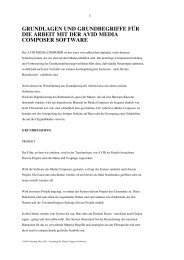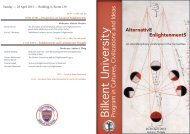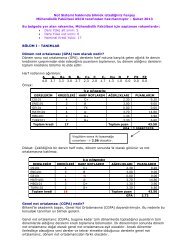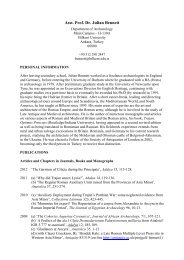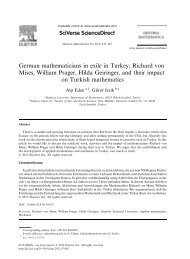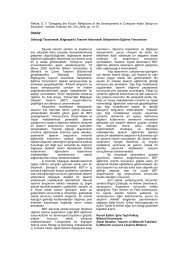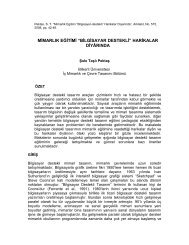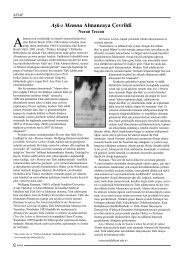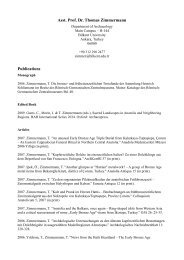The word Berat comes from the Arabic word ... - Bilkent University
The word Berat comes from the Arabic word ... - Bilkent University
The word Berat comes from the Arabic word ... - Bilkent University
You also want an ePaper? Increase the reach of your titles
YUMPU automatically turns print PDFs into web optimized ePapers that Google loves.
plural is berevat" in Ahter- i Kebir (h. 1316), "an official document used<br />
for granting patents, positions, civil service jobs, pay, and several<br />
immunities by <strong>the</strong> state" in Kamus- i Osmani (h. 1329). Lehçe- i Osmani,<br />
by Ahmet Paşa, does not mention <strong>the</strong> term, but we find it in <strong>the</strong><br />
"ferman " article: "Order, letter of order, sentence, yarl ığ, extensive<br />
berat ". In works on <strong>the</strong> diplomatics of <strong>the</strong> nineteenth century, berat is<br />
"an official document of immunity written in divani form, with imperial<br />
seal for granting various appointments (cihat- ı mütenevvia )". 67 Ano<strong>the</strong>r<br />
definition says that berat "is <strong>the</strong> name for ferman s granted by Evkaf- ı<br />
Hümayun Nezareti (<strong>the</strong> Office of Imperial Foundations) to those who<br />
hold an official post for religious services such as imamet , kitabet or<br />
tevliyet . 68 Comparing <strong>the</strong> last two definitions, <strong>the</strong> latter has <strong>the</strong><br />
expression "religious services" instead of "various appointments" used<br />
in <strong>the</strong> first both indicating berat s granted for posts concerning religion<br />
or religious foundations. Besides, in <strong>the</strong> latter <strong>the</strong> only government<br />
office authorized to grant berat is <strong>the</strong> Evkaf- ı Hümayun Nezareti . This<br />
was <strong>the</strong> result of <strong>the</strong> Tanzimat era, in which judicial, legal and<br />
administrative institutions underwent many changes, and<br />
appointments by berat were restricted to a small group of services<br />
concerning Evkaf- ı Hümayun Nezareti . According to Recyhman and<br />
Zajaczkowski, <strong>the</strong> term was "applied particularly to diplomas dealing<br />
with <strong>the</strong> appointment of dignitaries, with <strong>the</strong> granting of feudal estates,<br />
and with <strong>the</strong> specification of obligations." 69<br />
Finally we have to mention that <strong>the</strong>re are o<strong>the</strong>r berat s such as<br />
"ahidname", and "temlikname - m ülkname" which are not included in<br />
this study because of different diplomatic features, and <strong>the</strong>se would be<br />
<strong>the</strong> subject of ano<strong>the</strong>r study.<br />
67 Mehmet Tevfik, Usul- i İnş a ve Kitabet , İstanbul,<br />
1307, 417.<br />
68 Muhyiddin, M., Münşeat ve Muamelat - ı Askeriyye , İstanbul:<br />
1307, 417.<br />
69 Handbook of Ottoman - Turkish Diplomatics , trans. by A. Ehrenkreutz, <strong>The</strong> Hague,<br />
Paris: 1968, 136.<br />
16





